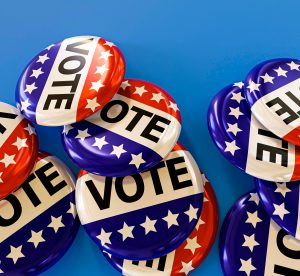JD's Midlife Tools For Living Practices, LLC



Designed by Freepic
Yes, election anxiety is a real thing. In fact, ‘election stress disorder’ is a concept that many mental health professionals are using although it is not an official diagnosis. It occurs when we experience overwhelming anxiety and we end up with several distressing symptoms that interfere with our daily living.
-You obsess about the election and keep so close an eye on the news you have difficulty not thinking about it.
-You have heightened tensions in your body—especially shoulders and neck.
-You are more irritable than normal—your fuse is rather short, you’re on edge, snap or drive fast.
-You have difficulties in your relationships because of your impatience, resentments or lack of compassion.
-You have disrupted sleep, toss and turn, have bad dreams about the election.
-You have physical symptoms—headaches, stomach upsets, fatigue, get sick easier.
-You have difficulty concentrating and make impulsive decisions.
-You drink or use drugs more.
The reality is that the last two presidential election cycles have been brutal for a majority of Americans. Polling by the American Psychological Association in 2016 revealed that 52% of Americans surveyed said the election that year was a “significant source of stress” in their lives. By 2020 that number had risen to 68%.
Since 2024, is likely to be a rematch of the 2020 presidential contenders. This year’s election is darned close to being a perfect anxiety storm!
1.Stop looking for doom by scrolling, deactivate alerts, and limit news consumption to 30 to 60 minutes daily.
2.Figure out your personal triggers, observe yourself. Who sets your off—a particular talking head, politician or news show set you off. Avoid your triggers.
3.Find balanced news sources that don’t have a bias in any certain direction. AllSides, a media bias rater lists Reuters, BBC News, The Hill and Newsweek as balanced news providers.
4.Do take care of yourself physically—get exercise, good sleep, eat a healthy diet.
5.Do take care of yourself emotionally—perhaps try meditation, massages, bubble baths, walks in nature, read a good (nonpolitical) book, listen to music, enjoy a hobby.
6.Stay connected with family and friends.
7.Avoid political arguments. Do practice respect, compassion, tolerance, just listen. Try not to judge others.
8.Refocus your attention and energy, determine what you can and can’t control and concentrate your efforts on those things you can control.
And if your anxiety due to the election is causing significant impairment, or causing clinical depression and sadness, and tearfulness, and feelings of hopelessness or helplessness that evolve into feelings of despair or even suicidal thoughts, certainly, do seek out professional help!
Do Contact Me begin Anxiety Therapy today!
JD’s Midlife Tools For Living Practices, Holland, MI
Offering Heartfelt care, Compassion and Coping Tools
